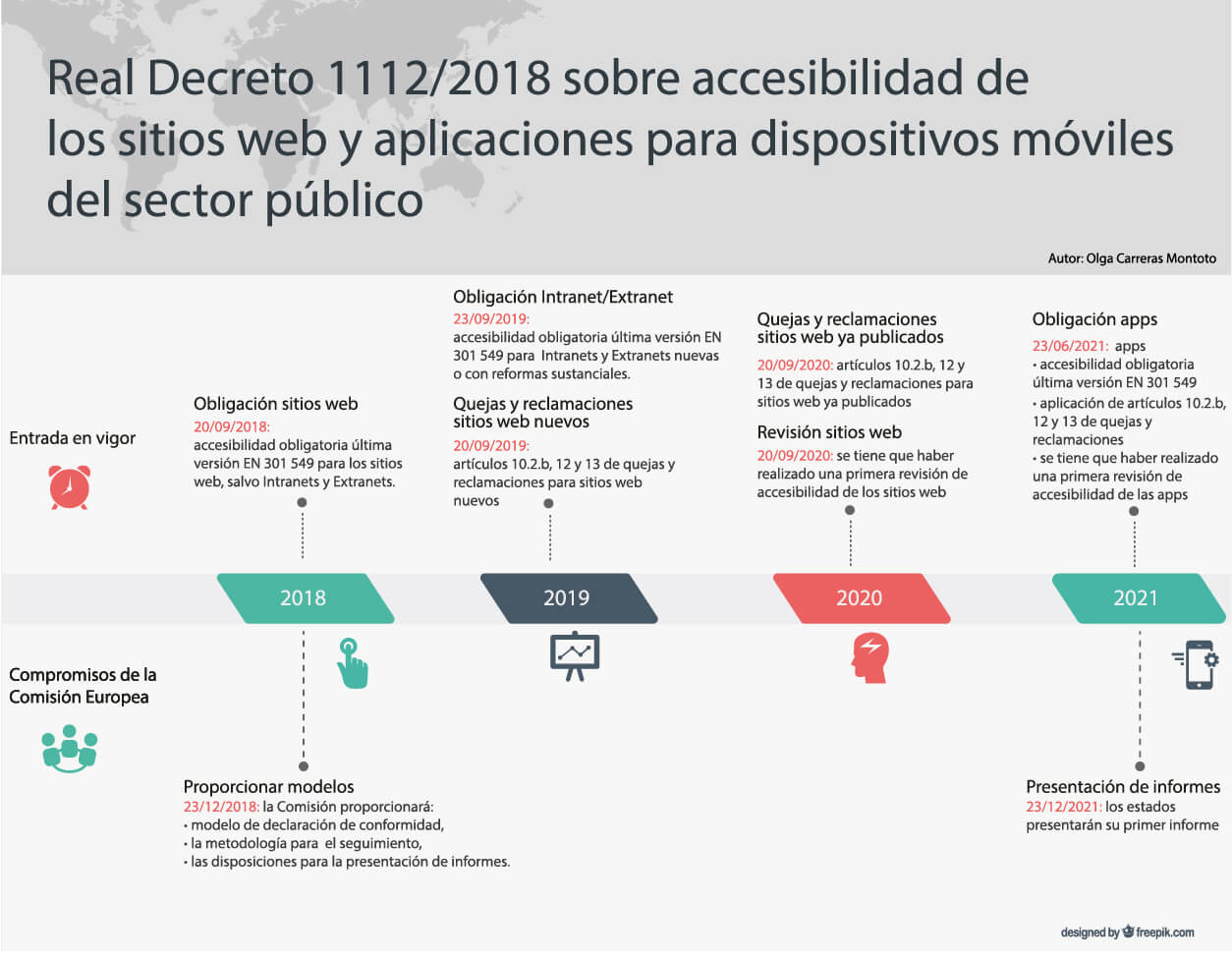“The decree of accessibility in websites and public apps is good news, now the sanctioning body needs to work”

Web accessibility and mobile applications of public bodies is today in the spotlight.
The Royal Decree 1112/2018 by which European legislation is adopted for compliance at the national level, with the inclusion of mobile apps, the figure of an expert in accessibility in the bodies and the application of clear mechanisms for complaints and claims, as some of the main novelties. The regulation seeks to guarantee equality and non-discrimination, especially people with disabilities and the elderly, and affects companies with public funding, suppliers of public entities and all State agencies: State administration, regional and local administrations, courts and constitutional bodies, services such as hospitals, schools …, etc.
“It’s certainly good news,” says Juanjo Montiel, head of Accessibility at Pasiona. “It increases the required accessibility criteria, updates the regulations to the latest version of the W3C guidelines, and obliges public or publicly funded bodies to make accessible not only their web portals, but also their native applications,” applauds Montiel. Apart from these key points of the new decree, our Accessibility Manager emphasizes the fact of facilitating the use of clearer and more direct mechanisms to present complaints and claims. It also highlights the new figure that the regulations provide: “each agency must have accessibility experts to review compliance.”
Graphic source: Olga Carreras
A great step forward with which the right to accessibility in electronic media is reinforced, but that does not exempt from continuing to demand that universal access and from keeping the radar active so that these regulations are a reality, according to Juanjo Montiel. “It only remains for the body in charge of sanctioning breaches to function properly and forcefully, and get the companies that are under the obligation to comply with this decree to do so as soon as possible,” he says.
Web accessibility is an issue that keeps the group of people with disabilities in constant struggle. Beyond the public sphere, Spanish legislation includes legal compliance requirements for web access, and surveillance has intensified in recent years. The most recent case was in July, when Endesa was sanctioned by the Ministry of Health for not accessible web, with a fine of 30,000 euros. “Accessibility must be complied with, not only as a matter of Corporate Social Responsibility, but as compliance with a law,” says Montiel. “There is still a long way to go, a lot of awareness, and from my point of view, a faster and more forceful application of the established sanctions.”
Awareness of developers and companies
“Beyond complying or not with the law, companies and developers are often not aware of the barriers they generate, unintentionally, when creating inaccessible websites,” warns Juanjo Montiel. “Actions as everyday as booking a flight, in many cases becomes mission impossible, since many airlines have totally inaccessible websites.”
In this context, our Head of Accessibility recalls the hell he had to go through with a trip to Seattle: “My original flight was canceled, and I had to, at the last minute, look for a flight on my own. I found one, but the airline’s website was not accessible, and I was not able to complete the reservation. Fortunately, I found an intermediary website to complete the purchase, but I was about to run out of space and not arrive in time to Seattle, “where I was traveling to give a conference.
Accessibility as a transversal subject in training
In this context, Juanjo defends turning accessibility into a transversal factor to computer training “both in VET courses and in university careers, since it would provide students with the tools and context so that accessibility was assumed from the base, and not as abstract concepts that they will have to learn, rebound, when they have to apply them by law. If they already know and assume the importance of accessibility, they will apply it just as they apply good practices in architecture, testing, design and usability,” he concludes.




